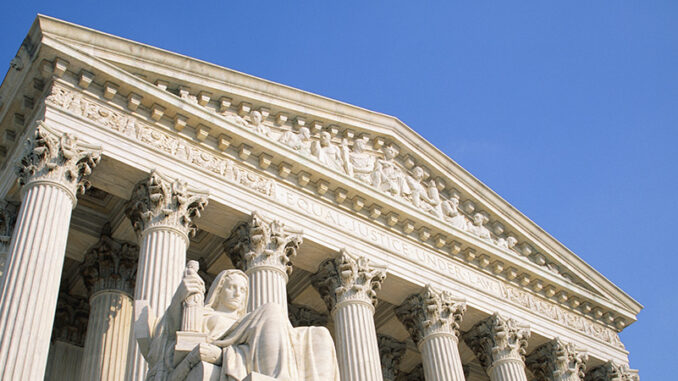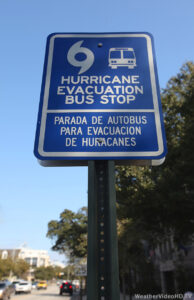
Historic Flooding in the Carolinas

When Hurricane Joaquin, which originated in the Caribbean, did not reach landfall on the eastern coast of the United States, many were relieved. But the storm managed to intensify heavy rains in South Carolina, resulting in historic levels of flooding. More than two feet of water fell over the course of a few days. Twenty-seven dams failed and more than 300 bridges and roads were closed. At least 19 people have died, many by drowning and traffic accidents. The damage so far has been estimated at over $1 billion.
President Obama declared South Carolina to be in a state of emergency. This means that state and local governments can receive assistance from the Federal Emergency Management Agency (FEMA) and other organizations to aid in recovery. Some of the lingering results of flooding can be high levels of bacteria in flood waters, breaches in systems that provide drinking water–leading to “boil alerts.” Schools and businesses have been closed. More than 800 people were evacuated from their homes and into temporary shelters. Some became victims of looters.
Dig Deeper Continuing rain has slowed recovery efforts. Find out specifics of aid as authorities prepare for the rivers to “crest,” or spill over their borders.
New Supreme Court Term Begins
Earlier this summer, btw brought you news of the landmark Supreme Court ruling on same-sex marriage, as well as an abbreviated explanation on how the Court determines which cases it hears. A new term began earlier this month, with focus on some of the following topics:
- Affirmative Action (Fisher v. University of Texas) – A white student, Abigail Fisher, filed suit against the university, challenging its admission policy after her application was rejected. The plaintiff claims that the university’s policy is inconsistent with the Grutter v. Bollinger case that declared affirmative action should not be a quota system.
- Juvenile Life Without Parole (Montgomery v. Louisiana) – In 2012, the Supreme Court outlawed life sentences without chance of release for minors. Henry Montgomery, a Louisiana inmate since 1963 who began his sentence as a juvenile, is petitioning the Court to apply the 2012 law to past cases.
- Voting Regulations (Evenwel v. Abbott) – This collection of cases draws attention to the way congressional districts are drawn. Originating in Texas and Arizona, the issue concerns asking the Court whether electoral districts must count all persons (including those not allowed to cast a vote, such as immigrants and ex-convicts) or only those deemed eligible voters.
Dig Deeper Supreme Court Chief Justice John Roberts is getting a lot of negative attention lately, particularly from Republican presidential hopefuls. Find out why and list at least three different reasons.
Nobel Peace Prize Winners
Each year, the Norwegian Nobel Committee awards a Peace Prize. This year, there were 273 nominees, the most ever in the history of the designation. Finalists included Pope Francis, German Chancellor Angela Merkel, John Kerry and his Iranian counterpart Javad Zarif, and African gynecologist and rape victim advocate Denis Mukwege. The Peace Prize went to the Tunisian National Dialogue Quartet.
Comprised of four organizations, the group was recognized for its contribution in building a pluralistic democracy in Tunisia during the 2011 Jasmine Revolution. When political assassinations and massive political unrest threatened to collapse the process of democracy, the Quartet was formed and helped establish a constitutional government in that country. The Arab Spring originated in Tunisia in 2010, spreading to several countries throughout the Middle East. One of the reasons why the Quartet was considered so successful was its strong support of both the constituent assembly as well as securing popular approval of the constitutional process among the Tunisian people. The Nobel Committee hopes that this award will contribute to the continuing efforts to promoting peace and democracy in the Middle East.
What Do You Think? Do you recognize any of the names on the finalist list? If so, whom? If not, choose at least one of them and write three sentences describing why they were considered for the Nobel Peace Prize.
Super-Recognizers
Have you ever gone to tag a friend’s photo on social media and had his or her name come up before you could type it? That’s facial recognition software. But while it can identify faces in crisp, digital photographs, it doesn’t do so well with blurred or lesser-quality technology such as surveillance cameras. Police in London (called “constables”) are bridging the gap by employing “super recognizers.” There are men and women who have extraordinary abilities to recall facial details.
The super recognizers are chosen from constables on the force who score the highest on a facial recognition test created by Harvard University in 2009. This ability is not the same thing as having a photographic memory. And it does not mean that one is necessarily good in recalling other types of details. Scotland Yard (the name for the police headquarters in London) currently employs 152 men and women as super recognizers. The number of suspects properly identified has nearly tripled since 2013.
